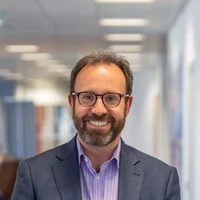We've taken wellbeing seriously in 2020 - and promise to keep improving
We've thought hard this year about how wellbeing should influence our work at Teach First - building a more accessible, flexible and useful environment for all.
The demands on schools in this year of COVID-19 have been enormous. This has put a real strain on teachers and school leaders. It is not just the personal risks, isolation and disruption they face at home and at work, it is the uncertainty - having to plan, rip up the plan and plan again. It is not well known outside of education, but the success of schools in terms of learning rests on a hidden foundation of logistical excellence - getting large numbers of the right people in the right place at the right time with the right equipment. That has never been harder.
Schools have also had to be strong for others - supporting families and communities as they face their own challenges. If nothing else, we have seen how much we rely on schools to hold things together, which itself carries a strain - both physical and emotional, as the health and financial effects of COVID-19 disproportionately affect the most vulnerable and disadvantaged.
On top of this, plenty of people are beginning their careers as teachers or leaders - adding the need to learn and develop on to the other demands. To an extent, this is true even for experienced teachers, who have had to master new technology and practices to support remote learners.
In short, we need to take wellbeing seriously for those who work in schools. We've thought hard this year about how it should influence our work at Teach First. The first step is to build in flexibility. Different people have different challenges and needs, and it is often our colleagues who work most closely with them (in Teach First and in our university partners) who understand best what to do. This means tailoring plans where needed including reducing workload at peak moments, extending deadlines and providing additional support with scheduling.
It is vital to work with in-school mentors, who have a powerful influence, and we have built wellbeing into our mentoring structures. We also have a formal online module on wellbeing built into our programmes that programme members can access in their own time. But when workload is a challenge, we just have to make sure that this is as accessible, flexible and useful as it possibly can be. A wellbeing module that feels like additional work would be counter-productive.
The increased use of technology contains both opportunities and risks to wellbeing. On the plus side, we can reach people without exposing them to any greater risk (as might come from travelling to a conference, for example). We have also found that we can have more frequent contact with trainees and programme members, as there is less time spent moving about.
On the downside, too much time on screen can be draining and we can lack the peer-to-peer contact and mutual support which is so vital to people's wellbeing (especially given the increased isolation in our home lives). Social connection is vital. We have worked hard to find ways to establish this online, with smaller breakout groups, and informal sessions, like the Discussion Boards on our NPQ offers. But we know we need to do more. Right now we’re looking at how we can make the most of interactive features and social networks to connect our trainees and programme members with each other to encourage greater peer support. We have an incredible community of trainees, teachers, mentors and leaders to learn from. No one should feel like they’re on their own. If organisations want to sustain a higher volume of remote working after COVID-19, they will need to pay serious attention to the need to foster social connections both on and offline.
I wish everyone reading this the best possible Christmas break under the circumstances. Rest and recuperation are vital parts of wellbeing. The new year should bring new hope, but there are lessons learned from these difficult times that we should sustain for the long term.
